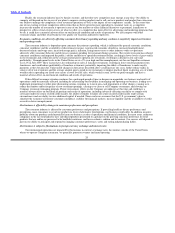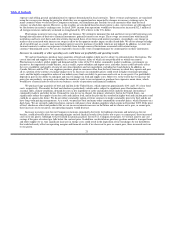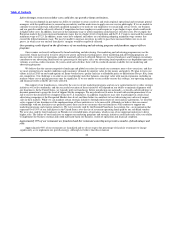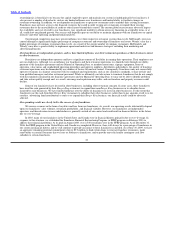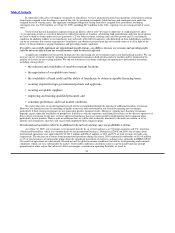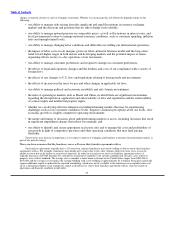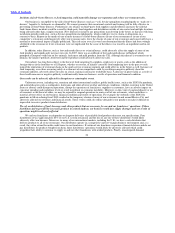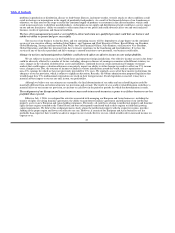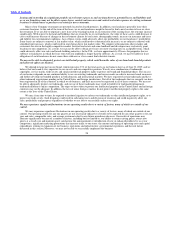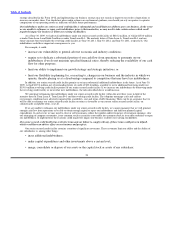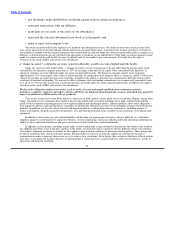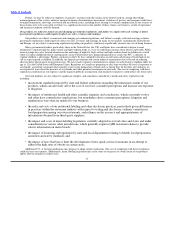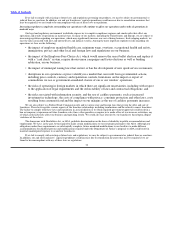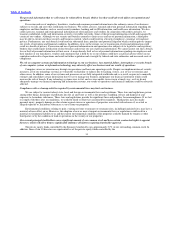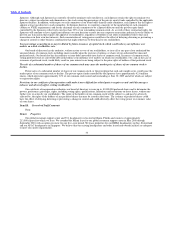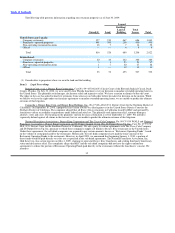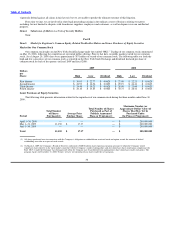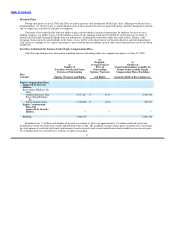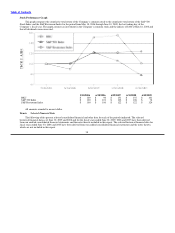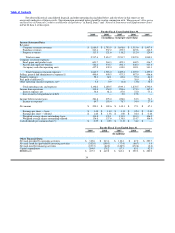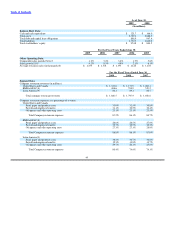Burger King 2009 Annual Report Download - page 32
Download and view the complete annual report
Please find page 32 of the 2009 Burger King annual report below. You can navigate through the pages in the report by either clicking on the pages listed below, or by using the keyword search tool below to find specific information within the annual report.
Table of Contents
• pay dividends, make distributions or redeem capital stock in certain circumstances;
• enter into transactions with our affiliates;
• grant liens on our assets or the assets of our subsidiaries;
• enter into the sale and subsequent lease−back of real property; and
• make or repay intercompany loans.
Our senior secured credit facility requires us to maintain specified financial ratios. Our ability to meet these financial ratios and
tests can be affected by events beyond our control, and we may not meet those ratios. A breach of any of these restrictive covenants or
our inability to comply with the required financial ratios would result in a default under our senior secured credit facility or require us to
dedicate a substantial portion of our cash flow from operations to payments on our indebtedness. If the banks accelerate amounts owing
under our senior secured credit facility because of a default and we are unable to pay such amounts, the banks have the right to
foreclose on the stock of BKC and certain of its subsidiaries.
A “change in control,” as defined in our senior secured credit facility, would be an event of default under the facility.
Under our senior secured credit facility, a “change in control” occurs if any person or group, other than the private equity funds
controlled by the Sponsors, acquires more than (1) 25% of our equity value and (2) the equity value controlled by the Sponsors. A
change in control is an event of default under our senior secured credit facility. The Sponsors currently control, in the aggregate,
approximately 32% of our equity value, and it would be possible for another person or group to effect a “change in control” without our
consent. If a change in control were to occur, the banks would have the ability to terminate any commitments under the facility and/or
accelerate all amounts outstanding. We may not be able to refinance such outstanding commitments on commercially reasonable terms,
or at all. If we were not able to pay such accelerated amounts, the banks under the senior secured credit facility would have the right to
foreclose on the stock of BKC and certain of its subsidiaries.
We face risks of litigation and pressure tactics, such as strikes, boycotts and negative publicity from restaurant customers,
franchisees, suppliers, employees and others, which could divert our financial and management resources and which may negatively
impact our financial condition and results of operations.
Class action lawsuits have been filed, and may continue to be filed, against various quick service restaurants alleging, among other
things, that quick service restaurants have failed to disclose the health risks associated with high−fat or high−sodium foods and that
quick service restaurant marketing practices have targeted children and encouraged obesity. Adverse publicity about these allegations
may negatively affect us and our franchisees, regardless of whether the allegations are true, by discouraging customers from buying our
products. In addition, we face the risk of lawsuits and negative publicity resulting from illnesses and injuries, including injuries to
infants and children, allegedly caused by our products, toys and other promotional items available in our restaurants or our playground
equipment.
In addition to decreasing our sales and profitability and diverting our management resources, adverse publicity or a substantial
judgment against us could negatively impact our business, results of operations, financial condition and brand reputation, hindering our
ability to attract and retain franchisees and grow our business in the United States and internationally.
In addition, activist groups, including animal rights activists and groups acting on behalf of franchisees, the workers who work for
our suppliers and others, have in the past, and may in the future, use pressure tactics to generate adverse publicity about us by alleging,
for example, inhumane treatment of animals by our suppliers, poor working conditions or unfair purchasing policies. These groups may
be able to coordinate their actions with other groups, threaten strikes or boycotts or enlist the support of well−known persons or
organizations in order to increase the pressure on us to achieve their stated aims. In the future, these actions or the threat of these actions
may force us to change our business practices or pricing policies, which may have a material adverse effect on our business, results of
operations and financial condition.
30


